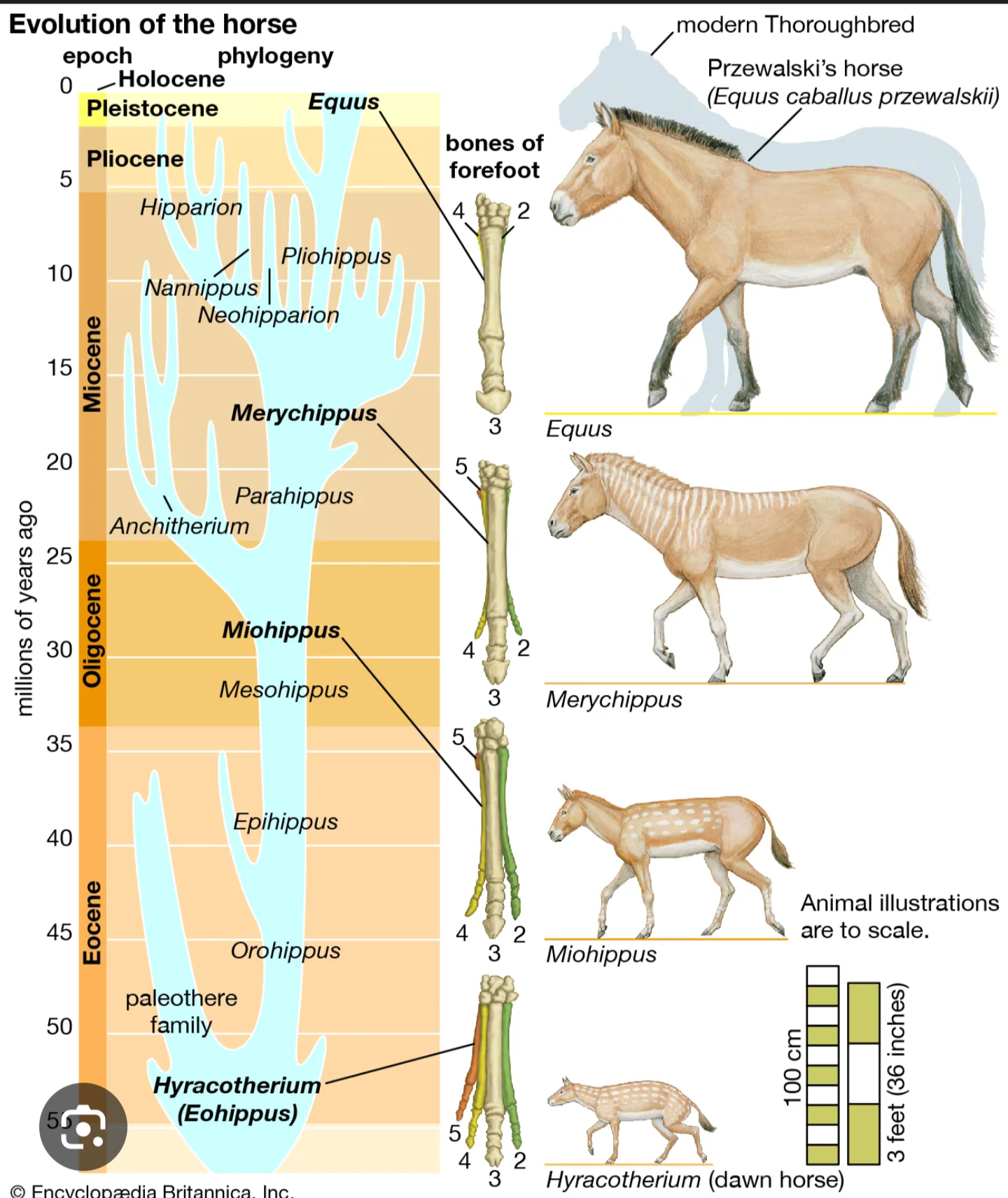It’s actually a really interesting question. It’s commonly believed that on horses the vestigial remnants of additional toes/hooves/foot structure are the chestnuts and ergots. The first known horse had 3 and 4 hooves per leg!
This is a trimmed chestnut. They grow a material similar to a nail or horse hoof - ergots are similar, but in a different location. When they get big you just peel or clip it off. They can smell a bit strong when you trim them, but hooves smell worse when the farrier comes out!
Neigh. The picture is only showing from the (human) wrist down. Horse legs and most (all?) mammal quadruped legs actually pretty closely resemble each other.
Actually, they’re running on fingertips with the hoof similar to the human nail.
https://esc.rutgers.edu/wp-content/uploads/2017/07/Bone-Comparison.jpg
For your viewing pleasure
Did the pinky and thumb just kinda disappear or are they even tinier than the ring and index equivalent?
It’s actually a really interesting question. It’s commonly believed that on horses the vestigial remnants of additional toes/hooves/foot structure are the chestnuts and ergots. The first known horse had 3 and 4 hooves per leg!
Isn’t that exactly what the picture is showing or am I missing something here.
Neigh. The picture is only showing from the (human) wrist down. Horse legs and most (all?) mammal quadruped legs actually pretty closely resemble each other.